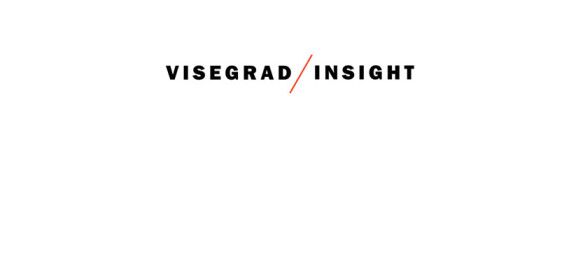Section: Visegrad Insight (Poland)
Narrowing Perceptions Meet Sustained Disunity – Part 1
This paper was written for the ‘V4 for Europe — Developing positive scenarios for Europe’s future’ workshop, organised by the Hungarian Europe Society in cooperation with the Friedrich Ebert Stiftung in Budapest on 16 May 2017. Whereas foreign relations and security concerns have gained a broader and comprehensive understanding under...
Zapad 2017 – survey
We asked Joerg Forbrig, Janusz Bugajski and Jaroslav Naď three questions concerning Zapad 2017 Why are Zapad exercises excepted with so much anxiety among NATO allies? What is NATO’s readiness for the scenarios trained during these exercises? Are Russians going to maintain the military presence in Belarus after Zapad exercises are...
Narrowing Perceptions Meet Sustained Disunity – Part 2
This paper was written for the ‘V4 for Europe — Developing positive scenarios for Europe’s future’ workshop, organised by the Hungarian Europe Society in cooperation with the Friedrich Ebert Stiftung in Budapest on 16 May 2017. The Visegrad countries’ approach to the crisis led to the prioritization of matters of internal...
Poland and the EU: looking for the exit door?
Until recently Poland was heralded in the EU as a remarkable success story. It joined the club in 2004 and since then its status and importance were growing till 2015, as testified by the election of Poland’s former Prime Minister Donald Tusk to the post of President of European Council in 2014. When joining the EU Poland’s GDP was...
Moral Combat in International Politics – Part 1
This paper was written for the ‘V4 for Europe — Developing positive scenarios for Europe’s future’ workshop, organised by the Hungarian Europe Society in cooperation with the Friedrich Ebert Stiftung in Budapest on 16 May 2017. “The positions of the opposing forces were clearly outlined in 2016. Nations rose up against the globalists,...
Moral Combat in International Politics – Part 2
This paper was written for the ‘V4 for Europe — Developing positive scenarios for Europe’s future’ workshop, organised by the Hungarian Europe Society in cooperation with the Friedrich Ebert Stiftung in Budapest on 16 May 2017. How is populist foreign policy made? Populists approach national unity through rallying their voters against...
The Three Seas Initiative will strengthen Europe
In a recent opinion piece, Wojciech Przybylski warned that Donald Trump’s endorsement of the Three Seas Initiative coupled with the subsequent politics of the Polish government may overshadow the Visegrad Group. I really cannot see why something like this should happen and why the countries involved in the initiative would be marginalized...
Central European states do not need rivalry, they need joint efforts
How would you explain Poland’s activism on a series of regional project proposals such as The Three Seas Initiative and Intermarium? What foreign policy perceptions drive with these two new concepts? Poland’s activity in the broader Central European region is a natural manifestation of the need to strengthen traditional ties with our...
Central Europe: A great start that was wasted
The economic transformation in Central Europe has ended. Politicians that base their economic policy on avoiding the middle income trap failed to realize that the V4 countries have not been middle income countries for couple of years now. However, expecting politicians to be up-to-date with facts is apparently not realistic. Yet the success is...
Consistently Inconsistent
The Corvinus Society for Foreign Affairs and Culture (CS4FAC) had the opportunity to organize a semester-long training program for university students which ran parallel in all four of the Visegrad countries, namely in the cities of Prague, Brno, Bratislava, Banska Bystrica, Kraków and Warsaw. The project ended with a conference called...



